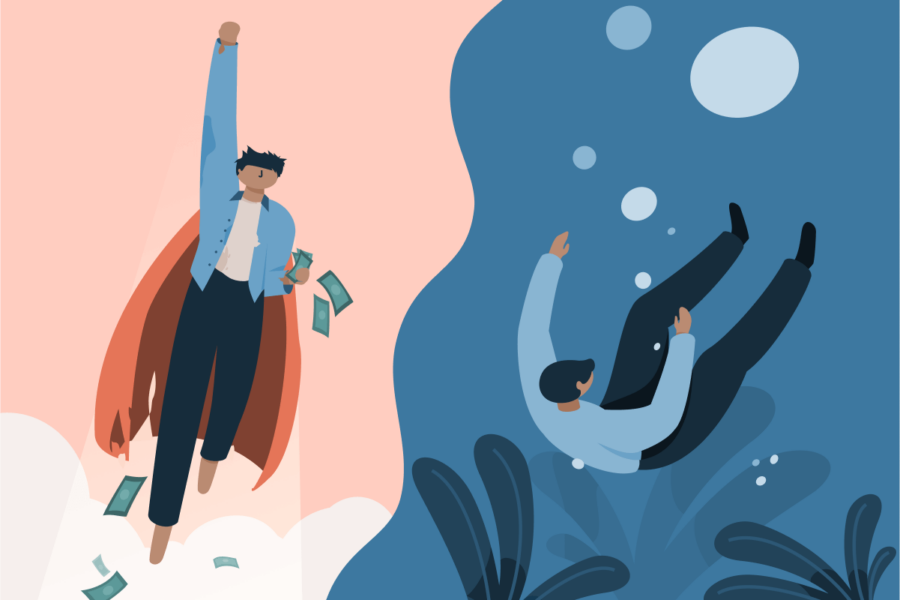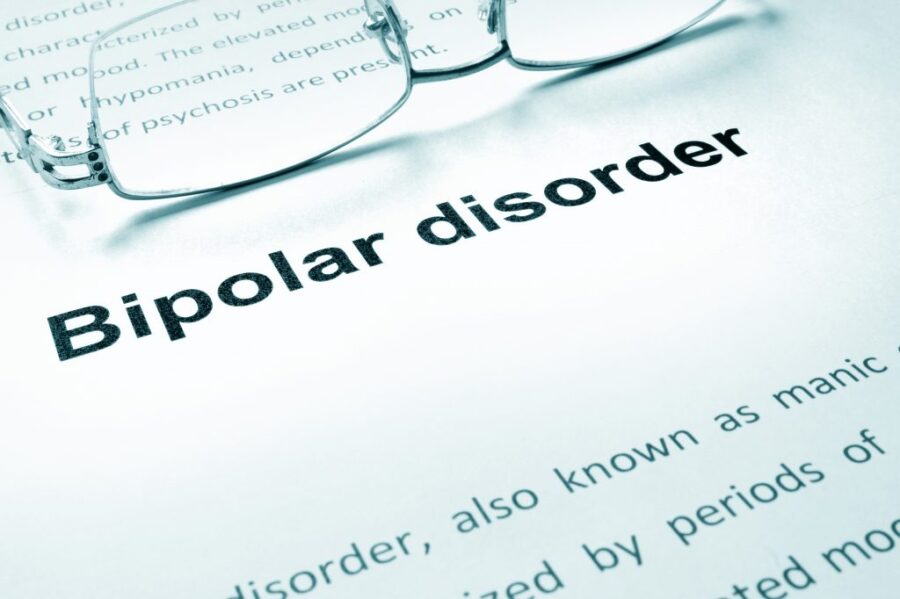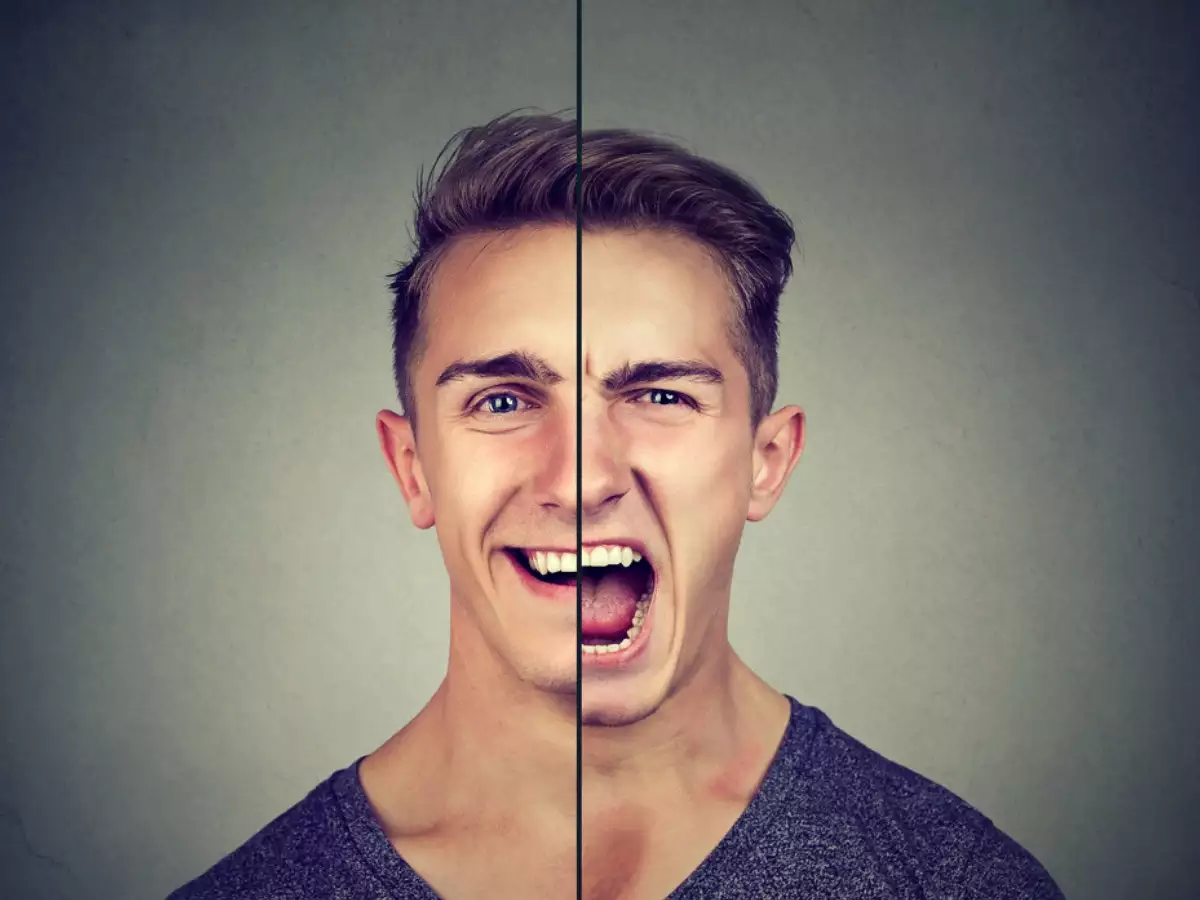People with bipolar disorder experience episodes of extreme happiness and intense anger, as well as periods of deep sadness or emptiness. These cycles can be debilitating and can interfere with everyday life.
There is no one “typical” bipolar disorder experience. However, people with the condition often have difficulty regulating their emotions, leading to swings from one extreme to another. People with this disorder may also have a history of emotional instability or intense periods of happiness and optimism followed by severe depression or despair.
People with bipolar disorder usually experience their first episode during late adolescence or early adulthood. The condition often gets worse over time, and people may experience multiple episodes throughout their lives. Although there is no known cure for this disorder, treatment options are available that can help reduce symptoms and improve quality of life.

How Common Is It?
Bipolar disorder is one of the most common mental disorders in the United States. It affects about 2.5 million people, or about 1 in every 50 Americans. Bipolar disorder is also one of the most serious mental disorders.
About 30 percent of people with bipolar disorder experience a relapse into full-blown episodes of mania or depression.
Bipolar disorder is caused by a combination of genes and environment. About 60 to 80 percent of people with this disorder have at least one family member who also has the condition.
Signs and Symptoms of Bipolar Disorder
Here are some signs and symptoms:
1. Mood swings. People with bipolar disorder may experience frequent shifts in their mood, from very happy to very sad or vice versa. They may also swing from feeling very energetic to feeling exhausted or irritable.
2. Racing thoughts. People with bipolar disorder may have a lot of racing thoughts – always going over what could have gone wrong or what might happen next. This can make it difficult for them to focus on anything else, let alone enjoy life.
3. Changes in sleep habits. People with bipolar disorder often have trouble sleeping and may go days without getting enough rest. This can lead to problems at work or school, as well as increased anxiety and stress levels overall.
4. Trouble concentrating. People with this disorder often find it hard to stay focused on tasks for long periods of time – something that can be especially challenging when it comes to schoolwork or work-related tasks.
5. Increased impulsiveness and risk-taking behaviors. Because people with bipolar disorder tend to be so impulsive, they can sometimes take dangerous risks that they wouldn’t normally consider – such as driving while under the influence or engaging in dangerous sexual behavior.
6. Increased alcohol or drug use. People with bipolar disorder may be more likely to abuse drugs or alcohol in order to self-medicate their symptoms. This can lead to increased problems with both substance abuse and addiction, which is a serious mental health condition in its own right.
7. Unrealistic expectations of oneself and others. People with bipolar disorder may have incredibly high or low expectations for themselves, as well as for others around them. This can lead to hurt feelings and disappointment when things don’t go the way they’d hoped or when others don’t meet their unrealistic expectations.

Diagnosis and Differential Diagnosis
Bipolar disorder is a mental health condition characterized by extreme mood swings, including mania and depression. It can be difficult to diagnose, as the signs and symptoms can vary from person to person. Some common signs and symptoms include:
- A change in mood, energy, or activity level that is out of the ordinary
- A rapid cycle of highs (mania) and lows (depression), which can last for weeks or months
- Excessive anger or other emotions that are out of control
- Sleep problems, including trouble falling asleep or staying asleep
- Strange thoughts or behavior, especially during mania or depression
Cognitive Issues in Bipolar Disorder
There are a few cognitive issues that are more common in people with bipolar disorder.
These include problems with memory, concentration, and problem-solving.
Memory issues can arise from mood swings and episodes of mania or depression. People with this disorder may have trouble remembering what happened during the previous manic or depressive episode. This can lead to problems with job performance and Social Security benefits because it can be difficult to provide evidence of a disability.
Concentration difficulties can also be a problem for people with bipolar disorder. They may have difficulty focusing on tasks or staying on task for an extended period of time. This can make it challenging to keep a job or complete schoolwork.
Problem-solving is also often difficult for people with this disorder. This might be due to the fact that they are dealing with changes in their moods and energy levels regularly. Problems that would normally be easy to solve become overwhelming when they are happening constantly or when they are accompanied by intense emotions.
Comorbidity of Psychiatric Disorders
There is a significant comorbidity of psychiatric disorders. That means that people with one psychiatric disorder are more likely to have another. The most commonly co-occurring psychiatric disorders are anxiety, depression, and ADHD. Other common comorbidities include bipolar disorder, eating disorders, OCD, schizophrenia, and substance abuse.
Each person is different and will respond differently to treatment for any number of psychiatric disorders. It is important to work with a healthcare professional who will know how to best help you through your individualized treatment plan.

